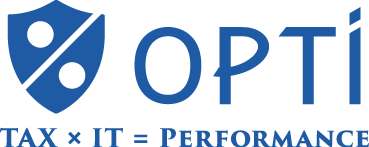Basics of VAT on overseas digital sales

When selling digital goods and services abroad, companies in the electrical industry face value-added tax (VAT) and sales tax returns.VAT is a tax imposed when goods or services are sold to the final consumer and is governed by the tax laws of the country where they are sold. Therefore, companies operating internationally need to understand and properly comply with the VAT regulations of different countries.
Division of VAT Returns in the Electrical Industry
When companies in the electrical industry sell abroad, they must adapt to the tax systems of multiple countries, which presents a significant challenge. Different countries have different VAT rates, filing methods, and tax payment deadlines, all of which require a great deal of time and effort to comply with. Furthermore, there is the risk of fines and penalties if incorrect declarations are made or tax payments are omitted.
Overview of Tax Technology and Its Benefits
Tax technology is a collective term for technologies that streamline, automate, and optimize tax processes. It includes cloud-based accounting software, AI, blockchain, and other technologies that can be leveraged to save time, reduce errors, and manage compliance risks in tax reporting. For companies in the electrical industry, especially those doing business internationally, the implementation of tax technology is an essential part of streamlining tax administration and mitigating risk.
Streamline VAT management with automated tools
Automated tools can streamline the VAT filing process. For example, cloud-based accounting software can provide integrated tax management with real-time access to financial data from various overseas locations. In addition, AI technology can be used to automatically collect and analyze data necessary for tax reporting and automatically prepare tax return documents, thereby reducing the workload of the tax team.
Identifying and addressing tax risks through data analysis
Data analysis tools allow companies to analyze tax data in detail and identify tax risks. This allows them to identify risks in advance and take appropriate measures to minimize the risk of fines and penalties. It also helps optimize tax strategies and plays an important role in maintaining a company's financial health.
Adapting to the Future Tax Environment: The Evolution of Tax Technology
The global tax environment is constantly changing, and as the digital economy evolves, so do international tax regimes; further developments in technologies such as AI, blockchain, and big data analytics will further improve the efficiency and accuracy of tax management. By adapting to these technological advancements and leveraging tax technology, companies can flexibly adapt to the changing tax environment and maintain their competitive advantage.
The VAT and sales tax challenges of international digital sales faced by companies in the electrical industry can be overcome with the evolution of tax technology. By understanding the complexities and risks of taxation and leveraging the latest technology, you can achieve efficient tax management, enhanced compliance, and sustainable business growth.














